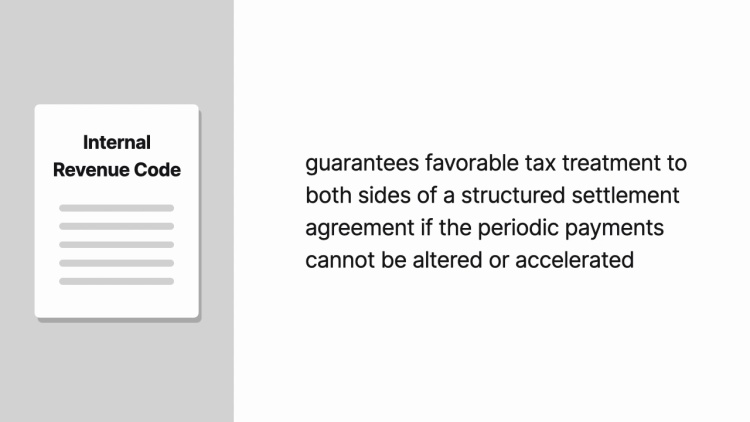Henderson v. Roadway Express
Illinois Appellate Court
720 N.E.2d 1108, 308 Ill. App. 3d 546 (1999)
- Written by Angela Patrick, JD
Facts
A federal law gave tax benefits to a payor for structuring a litigation settlement into periodic payments instead of a single lump sum—but only if the periodic payments could not be altered. Aaron Henderson (plaintiff) had a personal-injury claim against Roadway Express (defendant). Roadway Express settled the claim using a structured-settlement agreement that included (1) $30,000 in periodic future payments to Henderson; (2) an antiassignment provision that mirrored the tax law’s language and stated that Henderson could not accelerate, sell, or assign his rights to the periodic payments; and (3) a different provision stating that the entire agreement would be binding on the parties’ assignees. Henderson assigned his right to receive the $30,000 in periodic payments to Singer Asset Finance Company in exchange for a lump-sum payment of $12,210. As required by state law, Henderson then requested court approval of the assignment of his structured-settlement payments. The trial court denied the request, finding that the settlement agreement’s antiassignment provision prohibited Henderson’s assignment. Henderson appealed, arguing that antiassignment provisions were generally disfavored and that his settlement agreement’s antiassignment provision was unclear and unenforceable because (1) it did not use the word void and (2) another agreement provision implied that Henderson was allowed to have an assignee.
Rule of Law
Issue
Holding and Reasoning (Cook, J.)
What to do next…
Here's why 906,000 law students have relied on our case briefs:
- Written by law professors and practitioners, not other law students. 47,100 briefs, keyed to 996 casebooks. Top-notch customer support.
- The right amount of information, includes the facts, issues, rule of law, holding and reasoning, and any concurrences and dissents.
- Access in your classes, works on your mobile and tablet. Massive library of related video lessons and high quality multiple-choice questions.
- Easy to use, uniform format for every case brief. Written in plain English, not in legalese. Our briefs summarize and simplify; they don’t just repeat the court’s language.





